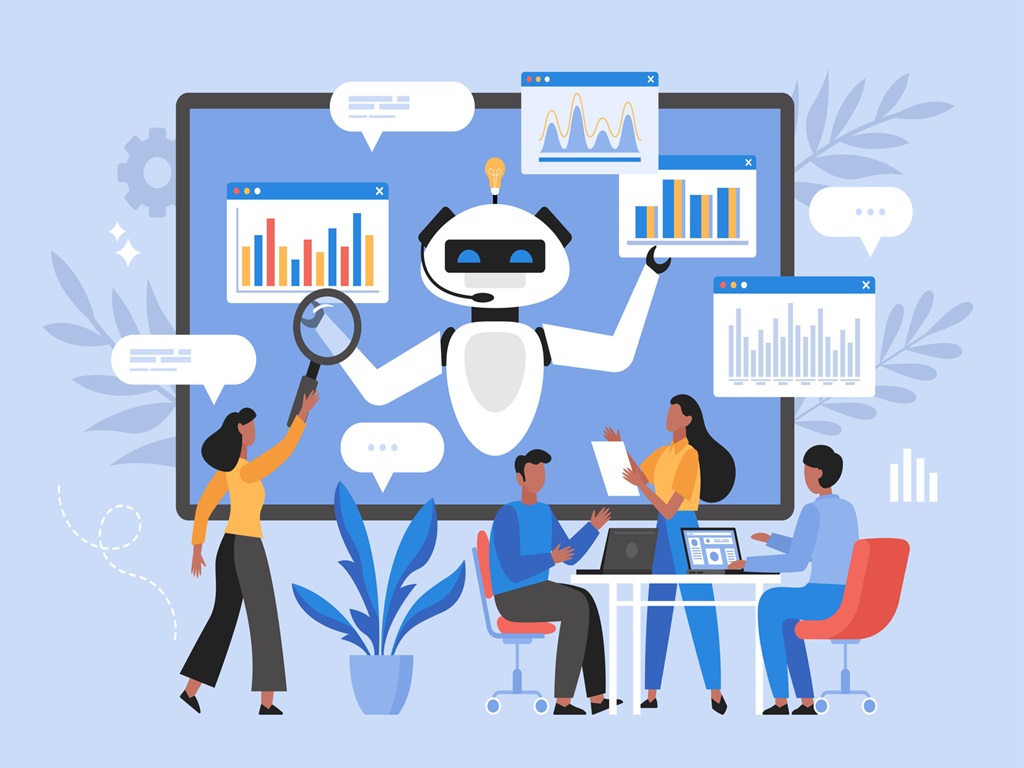
Business AI: Revolutionizing Industries and Unlocking Competitive Advantage
In today’s hypercompetitive market, businesses that fail to harness artificial intelligence (AI) risk being left behind. From automating mundane tasks to predicting customer behavior, Business AI is no longer a futuristic concept—it’s a necessity. This article explores how AI is reshaping industries, the tools driving this transformation, and actionable strategies for businesses to thrive in the AI era.
Why Business AI Matters Now
- 50% of enterprises now use AI for at least one business function (McKinsey, 2023).
- AI-powered companies see 40% higher productivity and 35% faster decision-making (Accenture).
- The global AI market is projected to reach $1.8 trillion by 2030 (Next Move Strategy Consulting).
But AI isn’t just about efficiency—it’s about reinventing how businesses operate, innovate, and connect with customers.
Key Trends in Business AI (2024)
1. Generative AI Takes Center Stage
Tools: ChatGPT, Claude, and Microsoft Copilot.
Use Cases:
- Marketing: Auto-generate blog posts, social media captions, and ad copy.
- Product Design: Rapidly prototype concepts with AI tools like MidJourney.
- Customer Service: Deploy AI chatbots that resolve 80% of queries without human intervention.
2. Hyperautomation
Combine AI with RPA (Robotic Process Automation) to automate end-to-end workflows:
- Invoice processing
- Supply chain optimization
- HR onboarding
Example: Coca-Cola uses AI to automate 30% of its procurement tasks.
3. Predictive Analytics for Decision Intelligence
AI Models forecast sales, inventory needs, and market shifts with 90%+ accuracy.
Tools: Tableau CRM, Salesforce Einstein, Power BI.
Case Study: Starbucks leverages AI to predict regional demand, reducing food waste by 20%.
4. AI-Driven Personalization
- Dynamic Pricing: Airlines and e-commerce platforms adjust prices in real time using AI.
- Tailored Experiences: Netflix’s recommendation engine drives 80% of viewer engagement.
5. Ethical AI & Governance
Challenges: Bias in hiring algorithms, deepfake fraud, and data privacy.
Solutions:
- Explainable AI (XAI): Make AI decisions transparent.
- AI Audits: Tools like IBM Watson OpenScale monitor fairness and compliance.
How Industries Are Leveraging Business AI
Retail & E-Commerce
- Inventory Management: AI predicts stockouts and overstocking.
- Visual Search: Apps like Pinterest Lens let users snap photos to find products.
- Fraud Detection: AI flags 95% of fraudulent transactions in real time.
Healthcare
- Diagnostics: PathAI detects cancer cells with 98% accuracy.
- Drug Discovery: Insilico Medicine used AI to design a fibrosis drug in 18 months (vs. 5 years traditionally).
Manufacturing
- Predictive Maintenance: Siemens reduces downtime by 25% using AI sensors.
- Quality Control: Computer vision inspects products for defects at scale.
Finance
- Algorithmic Trading: AI models execute trades in milliseconds based on market trends.
- Risk Assessment: Lending platforms like Upstart use AI to approve loans for underserved borrowers.
Challenges of Implementing Business AI
- Data Quality: Garbage in, garbage out—AI needs clean, structured data.
- Integration Costs: Legacy systems often clash with modern AI tools.
- Skill Gaps: 63% of companies lack AI talent (MIT Sloan).
- Regulatory Hurdles: GDPR, CCPA, and upcoming EU AI Act require compliance.
Solutions:
- Partner with AIaaS (AI-as-a-Service) providers like AWS SageMaker.
- Upskill teams via Coursera or LinkedIn Learning courses.
- Start small with pilot projects before scaling.
How to Get Started with Business AI
- Identify Pain s: Focus on high-impact areas (e.g., customer churn, supply chain delays).
- Choose the Right Tools:
- SMBs: Jasper (content), Zoho Analytics (BI), HubSpot AI (marketing).
- Enterprises: SAP AI Core, IBM Watson, Google Vertex AI.
- Build a Data Foundation: Invest in cloud storage (AWS, Azure) and data cleaning tools.
- Test & Iterate: Run A/B tests to refine AI models.
The Future of Business AI
- AI-Native Companies: Startups built entirely around AI, like OpenAI and Anthropic.
- Quantum AI: Solve complex optimization problems 100x faster (e.g., portfolio management).
- Self-Learning Systems: AI that adapts autonomously to market changes.
Ethical Considerations
- Bias Mitigation: Audit datasets for racial, gender, or socioeconomic biases.
- Job Reskilling: Prepare employees for AI-augmented roles (e.g., AI trainers).
- Sustainability: Use AI to reduce carbon footprints (e.g., Google’s data center cooling AI).

Conclusion
Business AI isn’t just a tool—it’s a paradigm shift. Organizations that embrace AI strategically will dominate their markets, while those that ignore it risk obsolescence. The key is to start small, prioritize ethics, and foster a culture of innovation.
